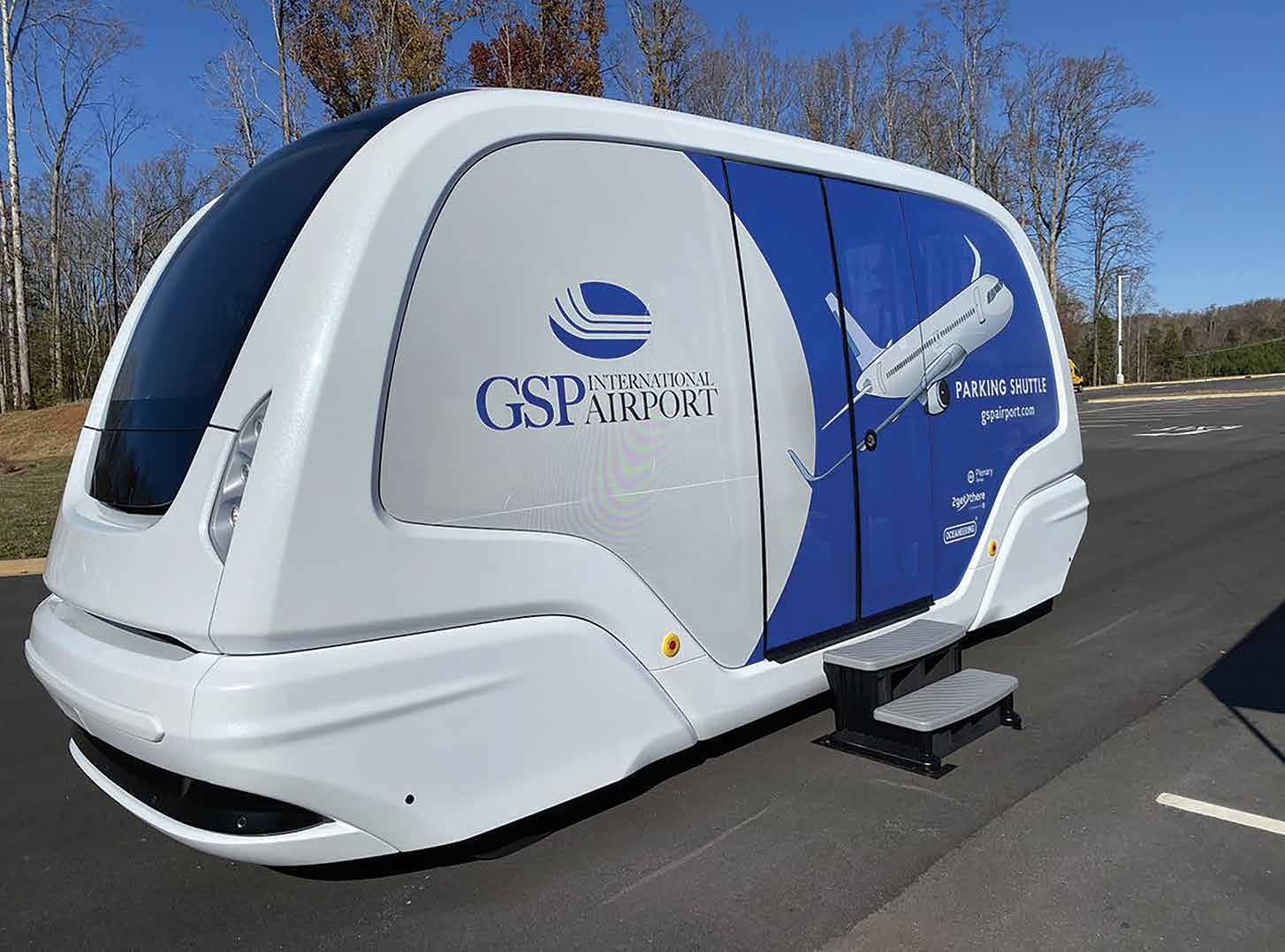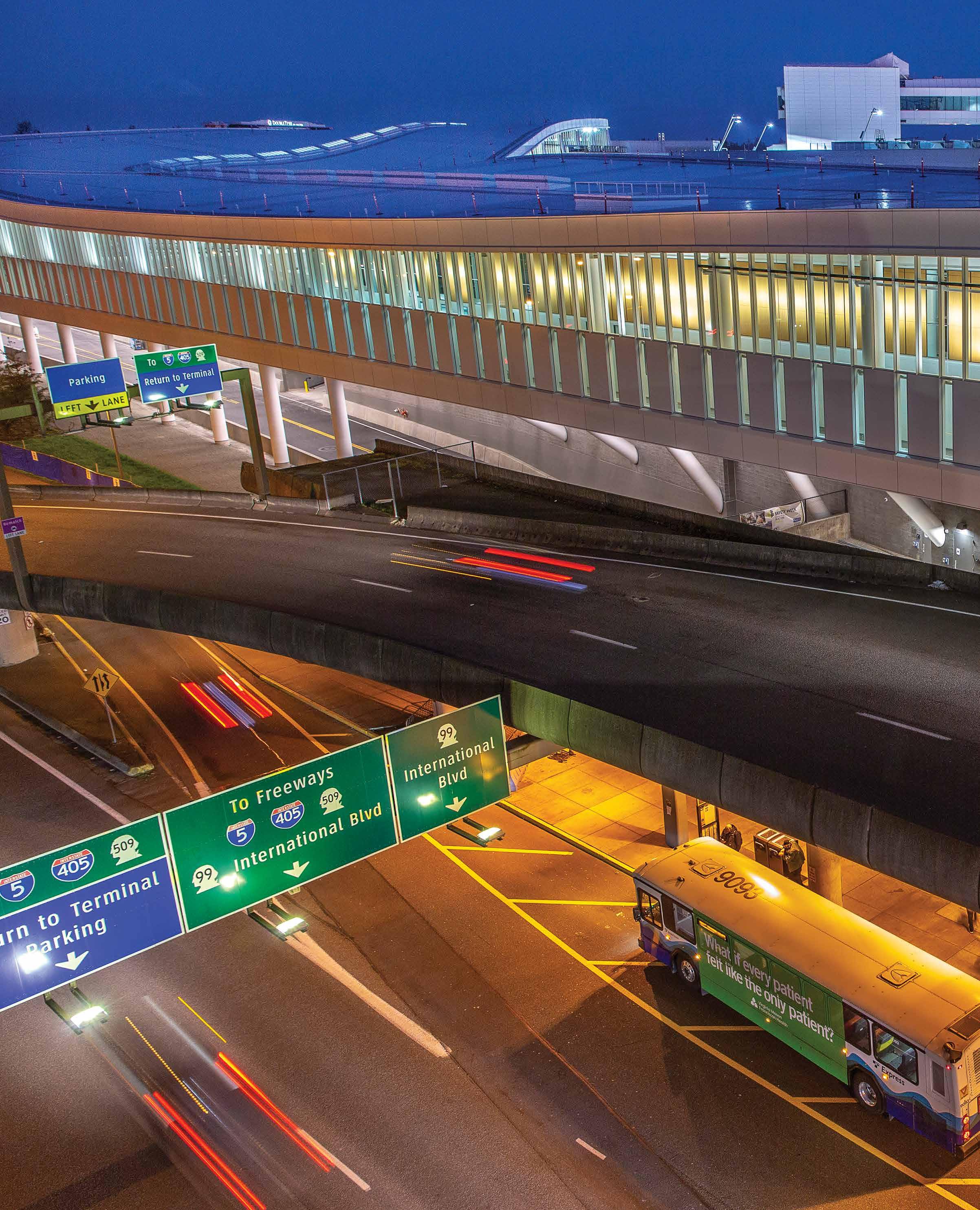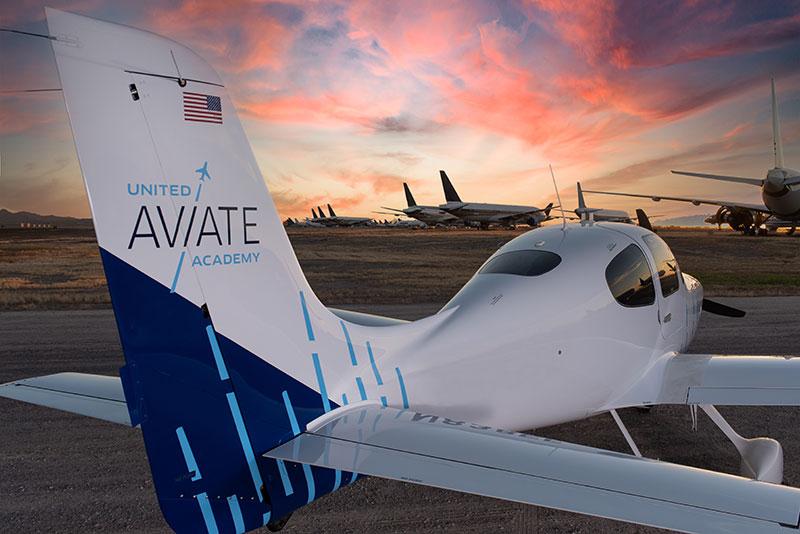BEFORE YOU TAKE OFF
AUTOMATIC, ELECTRIC EVOLUTION GSP Demonstrates Capabilities of Gasless, Driverless Vehicles At The Airport BY SHAFER ROSS Left: GSP recently demonstrated a fully functional, GSP-branded group rapid transit (GRT) vehicle, showing off safety features and its ability to spot obstacles and stop on a dime.
ust before the onset of the global pandemic, in early 2020, Greenville-Spartanburg International Airport (GSP) was looking into effective, innovative ways to move travelers between the terminal and both existing and planned economy parking lots. The typical shuttle bus solution didn’t appeal to the forward-thinking team, and after a visit to Heathrow Airport (LHR) in London – which uses pod-style automated personal rapid transit (PRT) vehicles to move 800 visitors per day between Terminal 5 and it’s 1500-space Business Car Park – Dave Edwards, president and CEO of GSP, decided to move forward with research into both automated and electric options. “We went through a procurement process for a system provider,” he says of the first steps in finding a similar solution for GSP. An RFP to build the system saw two proposals, one of which was Netherlands-based 2getthere. “When I went to visit 2getthere’s system in
J
38
A X NEWS WINTER 2022
Abu Dhabi, I stepped in front of the vehicle while it was moving at about 25 miles per hour, and it came to an immediate halt in the middle of the path,” Edwards says. 2getthere, which develops automated transit solutions, won the contract and brought two other companies in to collaborate and invest: Oceaneering and The Plenary Group. Despite the onset of the pandemic, the three companies were able to stay in touch with the airport and continue to develop ideas for bringing the project to life. On Nov. 30, 2021, GSP held a demonstration of the newly developed group rapid transit (GRT) vehicles in an unopened area of one of the parking lots for members of the airport board and other interested parties. The group rapid transit was a more appropriate option for the airport’s purposes than the smaller, personal-sized vehicles seen at LHR. “The PRT is usually a six-person vehicle, while the GRT is a
22-person vehicle. With luggage, the PRT may only hold three or four people, max, where the GRT could accommodate 12 to 15 people and their bags. “We’ll have a total of seven stations in parking lots, so if you come back from a flight you get on the system and, if you’re parked at the fourth station, you just press station number four as where you want to go, and it goes to that station without stopping anywhere else,” he continues. “It increases the level of customer service by taking folks where they want to go rather than forcing them to stop four or five times before making it to their destination.” The demonstration itself featured a fully functional, GSP-branded GRT showing off safety features and its ability to spot obstacles and stop on a dime. Once the program reaches its full maturity in about two years, a fleet of GRTs will zoom around on their own dedicated roadway without the assistance of a human operator, begging the question of where else in the airport this nifty and labor-free solution can help. “We are exploring automatically moving freight,” says Edwards. “We have grown to the 20th busiest air cargo airport in the U.S. by weight and value, and we need to be able to build some warehouse facilities on-airport but off the aircraft apron. We want to be able to deliver product right from the aircraft to go through a gate and, again, through a dedicated access roadway that would go to these other warehouse facilities and have that be automated rather than require drivers.” A more concrete plan for the rollout of this high-tech, forward-thinking parking transport solution will hopefully be revealed summer of 2022, Edwards says.









